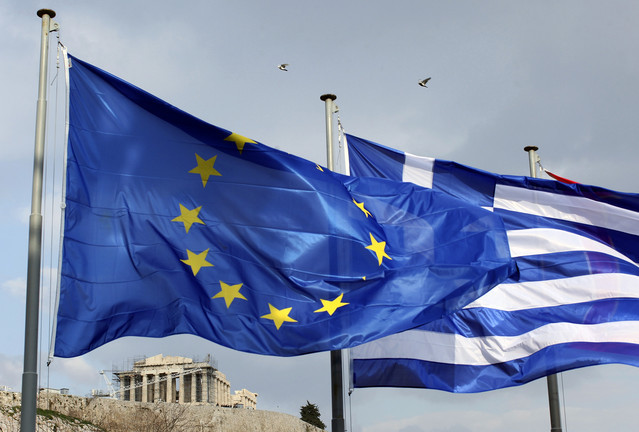Greek economic recovery crippled by corporate tax avoidance

Greece's economic recovery is being undermined by large-scale corporate tax avoidance, whereby companies use loopholes in places like the Netherlands and Luxembourg to pay little or no income tax, according to a new report from Dutch research group, SOMO.
Greece has been gripped by harsh austerity measures imposed by the European Commission, European Central Bank and International Monetary Fund (IMF) for the past five years. Meanwhile, a high proportion of capital is shifted between Greece and the Netherlands, where it is routed through so-called mailbox companies - recently founded firms, based in Holland for purely fiscal reasons.
Companies with a subsidiary in the Netherlands enjoy confidentiality agreements with Dutch tax authorities, and typically pay between 0 and 5% tax on the money they shift to and from that jurisdiction.
SOMO flagged up the unique network of bilateral treaties for the avoidance of double taxation and the special fiscal regimes for group financing operations. It estimates the number of mailbox companies at almost 20,000, which has been increasing rapidly in recent years.
"Tax abuse by large corporations operating in Greece and the facilitating role that EU law and Member States' fiscal regimes play therein should be closely scrutinised by the new European Parliament's special committee on tax rulings," Indra Römgens, SOMO researcher, said.
€1.7m mining tax lost
The SOMO report claims one such company is Canadian mining giant, Eldorado Gold, listed in London.
The firm has no Dutch material operations. Apparently, it has legally avoided paying €1.7m in tax in Greece in the past two years.
Allegedly, Eldora Gold shifts interest payments from Greek subsidiary Hellas Gold SA, via Dutch mailbox companies to a Barbados entity where this income remains untaxed.
EU double standards
If this financing structure persists, future profits from the project and related income tax can be expected to be substantially reduced, SOMO claims, especially if practised in combination with other tax avoidance techniques widely used by extractive sector firms.
"(The EU) actively facilitate tax avoidance which costs the Greek state millions of euros".
- Katrin McGauran
"The European Union and the Netherlands have double standards. On the one hand they impose harsh austerity measures which have devastating social and economic impacts in Greece; on the other hand they actively facilitate tax avoidance which costs the Greek state millions of euros," SOMO researcher Katrin McGauran, added.
Greece's already perilous cash crisis worsened last week after Athens learned it had no legal claim on €1.2bn in disputed funds from its bank rescue programme.
Greece's main creditors, including the IMF and the eurozone, must agree on a programme with Athens before they release the next round of financial aid to Greece.
© Copyright IBTimes 2025. All rights reserved.





















